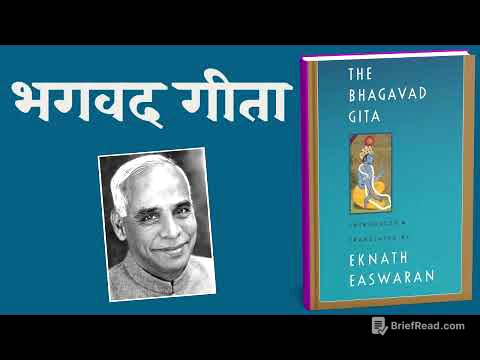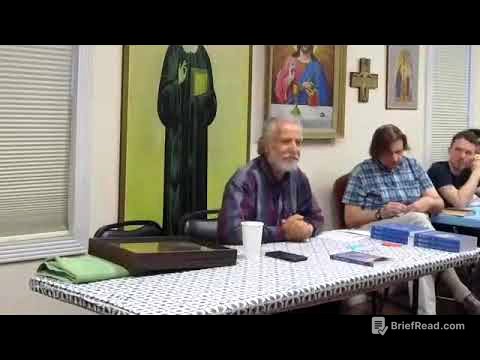TLDR;
The video discusses the resistance of the Saparua people in Maluku against Dutch colonization in 1817, led by Thomas Matulessy (Pattimura) and Christina Martha Tiahahu. It covers the historical context of Dutch control over Maluku's spice trade, the oppressive policies that led to the uprising, the key events of the war including the initial success of the Maluku troops and the eventual capture and execution of Pattimura, and the aftermath of the conflict.
- The London Treaty of 1814 returned Dutch colonies, including Indonesia, to the Netherlands, leading to renewed colonization.
- The people of Maluku, traumatized by the VOC's monopoly system and Hongi voyages, resisted the return of Dutch rule.
- The Saparua War, led by Pattimura and Christina Martha Tiahahu, saw initial success but ultimately ended with Dutch reinforcements and Pattimura's capture and execution.
Background of Dutch Colonization [0:04]
Following the London Treaty of 1814, Dutch colonies, including those in Indonesia, were returned to the Netherlands. This meant the reimposition of Dutch rule and the re-implementation of oppressive policies that had previously been in place. The return of the Dutch was particularly concerning to the people of Maluku, who had suffered under the Dutch East India Company (VOC) due to its strict spice monopoly and the Hongi voyages.
Maluku's Trauma and Resistance [0:36]
Maluku held significant importance for the Netherlands due to its status as a spice producer. The people of Maluku were deeply traumatized by the prospect of the return of the VOC monopoly system and the Hongi voyages. The VOC's monopoly allowed the Dutch to control spice prices, often at very low rates, and strict supervision and violence were common. The Hongi voyages, armed expeditions to destroy excess spice trees and prevent illegal trade, caused loss of livelihood, misery, and hunger among the population.
Brief Relief Under British Rule [2:02]
During British rule in Maluku, some hope arose as the British eased the burdens on the people by abolishing forced surrender and reducing corvée labor. However, this period was short-lived, and when the Dutch regained control, they reimplemented old practices, including heavy pressures and obligations such as forced labor, surrender of roofs and rice paddies, and surrender of salted fish, jerky, and coffee.
The Saparua War Erupts [2:46]
In 1817, the people of Maluku, driven by their suffering, rose up in arms against Dutch rule. The resistance, centered on Saparua Island, saw participation from residents of surrounding islands, both Christians and Muslims, united against the invaders. The Saparua War had a religious tone due to the Dutch making religious life difficult in the area. Protests, led by Thomas Matulessy, began with a list of complaints submitted to the Dutch, signed by local rulers and leaders.
Key Figures and Initial Successes [3:31]
The resistance was led by Thomas Matulessy, later known as Pattimura, along with other leaders such as Anthony Latumahina and the king of Siri Sori. Maluku troops successfully destroyed the Duurstede fortress on Saparua Island, resulting in the death of the Dutch president, Van Denberg. Additional Dutch troops from Ambon were also defeated.
Dutch Counterattack and Pattimura's Capture [3:58]
The resistance spread to Ambon, Seram, and other islands, prompting the Dutch to bring in troops from various regions and blockade Maluku. Despite Pattimura's forces changing their strategy to guerrilla warfare, the Dutch continued to bring in assistance, including troops from Ternate and Tidore. Pattimura was eventually betrayed by a Dutch citizen, captured, and sentenced to death in December 1817 at Victoria Fort, Ambon.
Aftermath and Legacy [5:16]
Pattimura's execution marked the end of the Saparua War. The leadership of the Maluku people's resistance was replaced by Christina Martha Tiahahu, who was later arrested and died on the way to exile in Java. The Dutch East Indies government implemented strict policies, severely punishing the Maluku people and re-imposing the spice monopoly. Despite the defeat, the struggle of Thomas Matulessy and Christina Martha Tiahahu is remembered as a significant act of resistance against colonialism.









